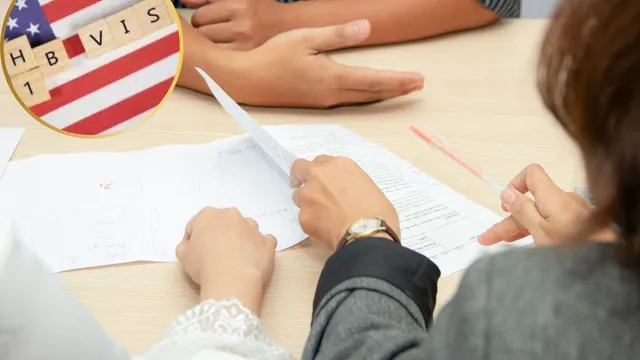- By Ajeet Kumar
- Tue, 12 Aug 2025 05:00 PM (IST)
- Source:JND
H-1B visa interview rule: In a move that could shake up the tech world, the US Department of State has brought back a requirement that many hoped had been left in the past. As of July 25, most nonimmigrant visa applicants, including those renewing their H-1B visas, must now attend in-person interviews at US consulates or embassies overseas.
The change reverses a COVID-era policy that had allowed many renewals to be processed without international travel. Now, thousands of skilled foreign workers, particularly in Silicon Valley, will have to make trips back to their home countries to keep working legally in the US.
What H-1B visa personal interview means for Silicon Valley
For tech giants like Google, Meta, and Apple, which rely heavily on international talent, the new rule brings a wave of uncertainty. These companies employ thousands of workers on H-1B visas, and the added travel and processing time could delay key projects and slow down hiring. And it's not just the workers who will be affected. In many cases, families may need to make the trip abroad together, making the process even more costly and complicated.
What are the Key Challenges
Travel cost: Employees, and sometimes their families, will have to plan and pay for international travel, time off work, and possibly weeks spent waiting abroad.
Processing delays: Countries like India and China, where many H-1B holders are from, often have long wait times at US consulates. Workers could find themselves stuck overseas, unable to return to their jobs on time.
Business slowdowns: Companies may need to rethink staffing timelines, delay projects, or seek temporary replacements while employees go through the visa renewal process.
What the experts are saying
Legal and immigration experts are sounding the alarm about the wider implications. "This isn’t just about paperwork," Audrea Golding, an immigration attorney based in San Jose, told NBC Bay Area. "This affects people’s lives, their families, their jobs, their ability to plan ahead," he added.
ALSO READ: US New Visa Rule Update: Foreigners Need To Pay $15,000 Visitors Bond | Here's What You Need To Know
Bill Hing, a law professor at the University of San Francisco, echoed those concerns. "Visa holders could end up stuck abroad for weeks or longer. For companies in the Bay Area that rely so heavily on H-1B talent, that kind of disruption isn’t minor, it’s massive,” he said.

